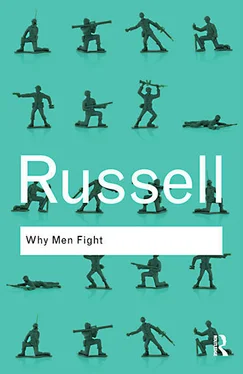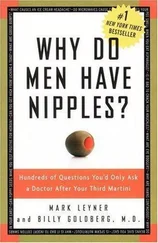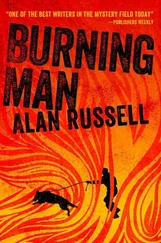Bertrand Russell - Why Men Fight
Здесь есть возможность читать онлайн «Bertrand Russell - Why Men Fight» весь текст электронной книги совершенно бесплатно (целиком полную версию без сокращений). В некоторых случаях можно слушать аудио, скачать через торрент в формате fb2 и присутствует краткое содержание. Город: London, Год выпуска: 2010, ISBN: 2010, Издательство: Routledge, Жанр: Философия, Публицистика, на английском языке. Описание произведения, (предисловие) а так же отзывы посетителей доступны на портале библиотеки ЛибКат.
- Название:Why Men Fight
- Автор:
- Издательство:Routledge
- Жанр:
- Год:2010
- Город:London
- ISBN:978-0-203-86469-2
- Рейтинг книги:3 / 5. Голосов: 1
-
Избранное:Добавить в избранное
- Отзывы:
-
Ваша оценка:
- 60
- 1
- 2
- 3
- 4
- 5
Why Men Fight: краткое содержание, описание и аннотация
Предлагаем к чтению аннотацию, описание, краткое содержание или предисловие (зависит от того, что написал сам автор книги «Why Men Fight»). Если вы не нашли необходимую информацию о книге — напишите в комментариях, мы постараемся отыскать её.
— discusses war, pacifism, reason, impulse and personal liberty, and greatly contributed to Russells fame as a formidable social critic and anti-war activist.
“The supreme principle, both in politics and in private life, should be to promote all that is creative, and so to diminish the impulses and desires that centre around possession.”
Bertrand Russell “Russell is one of the most profound thinkers of the modern age.”
The New York Times
Why Men Fight — читать онлайн бесплатно полную книгу (весь текст) целиком
Ниже представлен текст книги, разбитый по страницам. Система сохранения места последней прочитанной страницы, позволяет с удобством читать онлайн бесплатно книгу «Why Men Fight», без необходимости каждый раз заново искать на чём Вы остановились. Поставьте закладку, и сможете в любой момент перейти на страницу, на которой закончили чтение.
Интервал:
Закладка:
PREFACE
The following lectures were written in 1915, and delivered in the beginning of 1916. I had hoped to re-write them considerably, and make them somewhat less inadequate to their theme; but other work, which seemed more pressing, intervened, and the prospect of opportunity for leisurely revision remains remote.
My aim is to suggest a philosophy of politics based upon the belief that impulse has more effect than conscious purpose in moulding men’s lives. Most impulses may be divided into two groups, the possessive and the creative, according as they aim at acquiring or retaining something that cannot be shared, or at bringing into the world some valuable thing, such as knowledge or art or goodwill, in which there is no private property. I consider the best life that which is most built on creative impulses, and the worst that which is most inspired by love of possession. Political institutions have a very great influence upon the dispositions of men and women, and should be such as to promote creativeness at the expense of possessiveness. The State, war, and property are the chief political embodiments of the possessive impulses; education, marriage, and religion ought to embody the creative impulses, though at present they do so very inadequately. Liberation of creativeness ought to be the principle of reform both in politics and in economics. It is this conviction which has led to the writing of these lectures.
1
THE PRINCIPLE OF GROWTH
To all who are capable of new impressions and fresh thought, some modification of former beliefs and hopes has been brought by the war. What the modification has been has depended, in each case, upon character and circumstance; but in one form or another it has been almost universal. To me, the chief thing to be learnt through the war has been a certain view of the springs of human action, what they are, and what we may legitimately hope that they will become. This view, if it is true, seems to afford a basis for political philosophy more capable of standing erect in a time of crisis than the philosophy of traditional Liberalism has shown itself to be. The following lectures, though only one of them will deal with war, are all inspired by a view of the springs of action which has been suggested by the war. And all of them are informed by the hope of seeing such political institutions established in Europe as shall make men averse from war—a hope which I firmly believe to be realizable, though not without a great and fundamental reconstruction of economic and social life.
To one who stands outside the cycle of beliefs and passions which make the war seem necessary, an isolation, an almost unbearable separation from the general activity, becomes unavoidable. At the very moment when the universal disaster raises compassion in the highest degree, compassion itself compels aloofness from the impulse to self-destruction which has swept over Europe. The helpless longing to save men from the ruin towards which they are hastening makes it necessary to oppose the stream, to incur hostility, to be thought unfeeling, to lose for the moment the power of winning belief. It is impossible to prevent others from feeling hostile, but it is possible to avoid any reciprocal hostility on one’s own part, by imaginative understanding and the sympathy which grows out of it. And without understanding and sympathy it is impossible to find a cure for the evil from which the world is suffering.
There are two views of the war neither of which seems to me adequate. The usual view in this country is that it is due to the wickedness of the Germans; the view of most pacifists is that it is due to the diplomatic tangle and to the ambitions of Governments. I think both these views fail to realize the extent to which war grows out of ordinary human nature. Germans, and also the men who compose Governments, are on the whole average human beings, actuated by the same passions that actuate others, not differing much from the rest of the world except in their circumstances. War is accepted by men who are neither Germans nor diplomatists with a readiness, an acquiescence in untrue and inadequate reasons, which would not be possible if any deep repugnance to war were widespread in other nations or classes. The untrue things which men believe, and the true things which they disbelieve, are an index to their impulses—not necessarily to individual impulses in each case (since beliefs are contagious), but to the general impulses of the community. We all believe many things which we have no good ground for believing, because, subconsciously, our nature craves certain kinds of action which these beliefs would render reasonable if they were true. Unfounded beliefs are the homage which impulse pays to reason; and thus it is with the beliefs which, opposite but similar, make men here and in Germany believe it their duty to prosecute the war.
Thefirst thought which naturally occurs to one who accepts this view is that it would be well if men were more under the dominion of reason. War, to those who see that it must necessarily do untold harm to all the combatants, seems a mere madness, a collective insanity in which all that has been known in time of peace is forgotten. If impulses were more controlled, if thought were less dominated by passion, men would guard their minds against the approaches of war fever, and disputes would be adjusted amicably. This is true, but it is not by itself sufficient. It is only those in whom the desire to think truly is itself a passion who will find this desire adequate to control the passions of war. Only passion can control passion, and only a contrary impulse or desire can check impulse. Reason, as it is preached by traditional moralists, is too negative, too little living, to make a good life. It is not by reason alone that wars can be prevented, but by a positive life of impulses and passions antagonistic to those that lead to war. It is the life of impulse that needs to be changed, not only the life of conscious thought.
All human activity springs from two sources: impulse and desire. The part played by desire has always been sufficiently recognized. When men find themselves not fully contented, and not able instantly to procure what will cause content, imagination brings before their minds the thought of things which they believe would make them happy. All desire involves an interval of time between the consciousness of a need and the opportunity for satisfying it. The acts inspired by desire may be in themselves painful, the time before satisfaction can be achieved may be very long, the object desired may be something outside our own lives, and even after our own death. Will, as a directing force, consists mainly in following desires for more or less distant objects, in spite of the painfulness of the acts involved and the solicitations of incompatible but more immediate desires and impulses. All this is familiar, and political philosophy hitherto has been almost entirely based upon desire as the source of human actions.
But desire governs no more than a part of human activity, and that not the most important but only the more conscious, explicit, and civilized part.
In all the more instinctive part of our nature we are dominated by impulses to certain kinds of activity, not by desires for certain ends. Children run and shout, not because of any good which they expect to realize, but because of a direct impulse to running and shouting. Dogs bay the moon, not because they consider that it is to their advantage to do so, but because they feel an impulse to bark. It is not any purpose, but merely an impulse, that prompts such actions as eating, drinking, love-making, quarrel-ling, boasting. Those who believe that man is a rational animal will say that people boast in order that others may have a good opinion of them; but most of us can recall occasions when we have boasted in spite of knowing that we should be despised for it. Instinctive acts normally achieve some result which is agreeable to the natural man, but they are not performed from desire for this result. They are performed from direct impulse, and the impulse is often strong even in cases in which the normal desirable result cannot follow. Grown men like to imagine themselves more rational than children and dogs, and unconsciously conceal from themselves how great a part impulse plays in their lives. This unconscious concealment always follows a certain general plan. When an impulse is not indulged in the moment in which it arises, there grows up a desire for the expected consequences of indulging the impulse. If some of the consequences which are reasonably to be expected are clearly disagreeable, a conflict between foresight and impulse arises. If the impulse is weak, foresight may conquer; this is what is called acting on reason. If the impulse is strong, either foresight will be falsified, and the disagreeable consequences will be forgotten, or, in men of a heroic mould, the consequences may be recklessly accepted. When Macbeth realizes that he is doomed to defeat, he does not shrink from the fight; he exclaims:—
Читать дальшеИнтервал:
Закладка:
Похожие книги на «Why Men Fight»
Представляем Вашему вниманию похожие книги на «Why Men Fight» списком для выбора. Мы отобрали схожую по названию и смыслу литературу в надежде предоставить читателям больше вариантов отыскать новые, интересные, ещё непрочитанные произведения.
Обсуждение, отзывы о книге «Why Men Fight» и просто собственные мнения читателей. Оставьте ваши комментарии, напишите, что Вы думаете о произведении, его смысле или главных героях. Укажите что конкретно понравилось, а что нет, и почему Вы так считаете.












